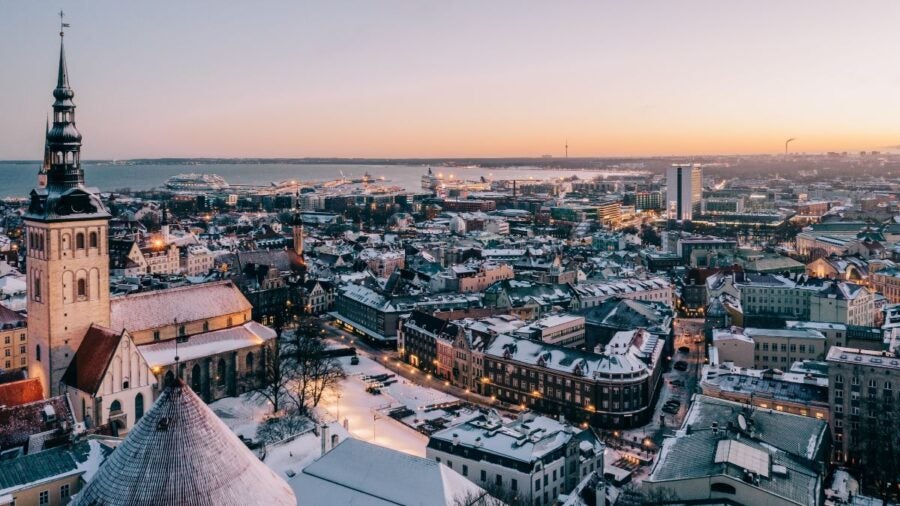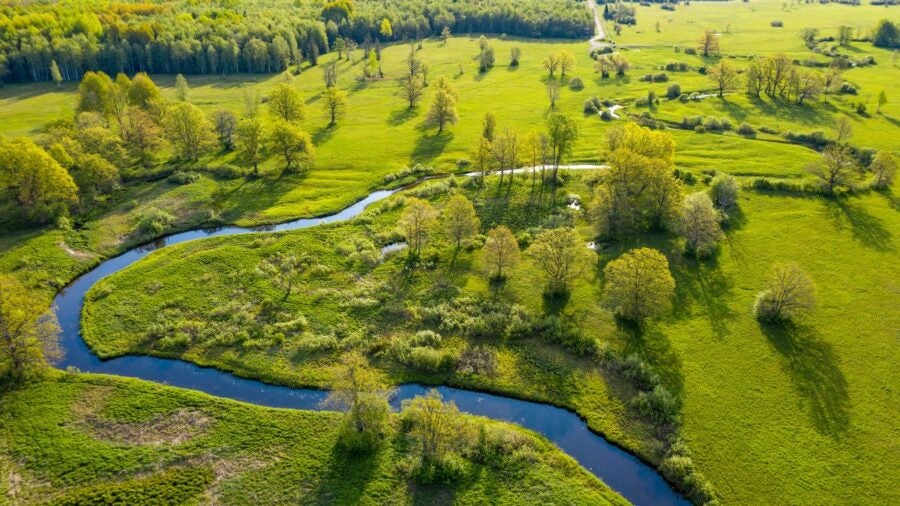Accepting the limitations of a small population (around 1.3 million people), there has been a cross-party consensus across successive Estonian governments to make the country “the world’s first digital republic”.
In practice, this has meant a coordinated digitisation of most of its public services and administrative processes such as voting and tax returns; widespread and reliable free public Wi-Fi; huge investment in research and development; and the establishment of the e-Residency programme that allows non-Estonians to access business services, including being able to set up and run a company remotely.
Since regaining independence from the Communist Party of the Soviet Union in 1991, Estonia has enthusiastically adopted a market economy. It has joined the United Nations, the European Union and Nato. In 2000, it became the first country in the world to declare internet access as a human right.
Annika Järs is the foreign relations development manager at government-funded business advocacy organisation Startup Estonia. The small Baltic nation, she says, is “very self-aware” and views technology as “the perfect way to punch above our weight”.
What is e-Residency?
When it comes to working or doing business in Estonia, e-Residency offers the most straightforward route. Since the programme’s launch in 2014, more than 107,000 people from 180 different countries (excluding repeat applications) have been accepted into it. To date, there have been more than 28,000 new companies established by e-residents in Estonia, generating approximately €190m (£166m) in tax revenue.
Last year, one e-resident set up a company in 15 minutes and 33 seconds
What e-Residency does, Järs explains, is “give people the opportunity to form a company which is legally resident in Estonia. They themselves will not be tax residents of Estonia [and they will still pay personal taxes in their home countries], but their companies will be.”
Estonia has bilateral, double taxation agreements with more than 60 countries worldwide, including France, Germany, Spain and the UK, so in most cases e-residents will not be taxed on the same income twice over.
Applying for e-Residency is simple. Interested professionals submit their CV, motivation statement and passport to the Estonian government’s dedicated website. Applications cost between €100 and €130 and, once approved, are valid for five years.
Typically, the processes of registering a company can take between one day and one week. But at London Tech Week last year, an e-resident from Austria set up his firm, sign.online, in a record-setting 15 minutes and 33 seconds.
While it is eminently possible for e-residents to run their business operations remotely, many have chosen to relocate to Estonia.
The digital nomad visa
When it comes to living and working in Estonia, there are several options for foreigners. As of 2020, Estonia offers two types of visas for digital nomads. These allow people to work remotely for any employer that is registered in another country – although Russian companies are excluded due to the ongoing war with Ukraine. The type C visa (priced at €80) enables a 90-day working residency, while type D (€100) is valid for a year.
To qualify for either visa, applicants need to show a contract of employment – either with a company or regular freelance – that generates a pre-tax income of at least €4,500 per month; and that they have been on such a salary for at least six months before their application. They must also have proof of somewhere to stay for the duration of their visa.

To apply for a digital nomad visa, professionals should arrange an appointment with their local Estonian embassy. The process can take between three and six weeks.
As well as being able to work flexibly and remotely from Estonia, both type C and D visa-holders may travel visa-free to any other countries in the Schengen area. But they can only stay in any one of these for three months within a six-month period.
Shafi Musaddique is a freelance journalist who moved to Estonia’s capital Tallinn earlier this year. He says his digital nomad visa has enabled him to “carve out a strong niche” for himself, while enjoying “new freedom, experiences and flexibility”.
Musaddique has written for publications across Europe and is a Baltics correspondent for The Guardian. “Being one of the very few British journalists based over here means I can offer strong local insights and follow up evolving stories in the region quickly. At the same time, I get to make the most of living here too… Tallinn has a much lower cost of living than London.”
Access to international talent and a culture of efficiency
From an employer’s perspective, Estonia has a deep talent pool. Around one in five (21%) Estonian adults has a master’s degree. More than three-quarters (78%) speak at least one foreign language and more than a third (35%) speak at least two, with the most commonly spoken foreign language being English.
More than three-quarters of Estonians speak at least one foreign language
Estonia is also an incredibly digitally literate nation. IT is a compulsory subject at school and children begin learning computer programming skills as early as seven years old. According to Haridussilm, a government body which reports on education statistics, more than a quarter (28%) of Estonian graduates study Stem subjects.
In addition to the native talent, companies that are based in Estonia have easy access to workers from across the EU. This is particularly useful for companies that have large international client bases, notes Joonas Vänto, director of Invest Estonia, a government agency promoting direct foreign investments.
Estonia’s commitment to the “work-from-anywhere concept”, he says, helps the country attract and retain talent from all over the world. “In our 30-person team, a third work outside of Estonia, in countries ranging from Germany to the US and Singapore,” he adds. Estonia’s “low-red-tape business environment” also means companies can be agile in their recruitment and hire specialist, localised knowledge as and when needed.
As for the working culture of Estonia, Vicky Brock, a British expat who now lives in the country and is the CEO of Vistalworks, a cybersecurity software firm, praises the “entrepreneurial spirit” and the “work-hard and work-smart mindset” of her local employees and clients.
“Efficiency is a big thing here,” she explains. “The people work really hard, so that they can enjoy their time off, without stress or guilt. If you end up working overtime here, it’s a sign that you haven’t managed your time well enough. And there isn’t really a culture of ‘that can wait’, because people like to be able to switch off, without having anything lingering in the back of their mind. I really like that.”
The weather, food, drink, people and things to do
The Estonian climate is characterised by moderately hot but intermittently rainy summers and long, cold winters. In Tallinn, the average temperatures stay below freezing from December through to March.
Estonian people, however, are characteristically warm. The Baltic nation prides itself on friendliness and has a refreshingly welcoming attitude towards expats, immigrants and tourists alike. “It is in our interest,” says Järs. “These people could be customers, colleagues, business partners and friends. It’s always nice to meet new people.”

Estonia’s cities, meanwhile, mix medieval and modern architecture within a few hundred yards of each other. For people who prefer the countryside, Estonia boasts six national parks, as well as forests, salt marshes, mountains and beaches.
“It’s a compact country,” explains Ettie Mikita, marketing and communications lead at Startup Estonia. “So it’s possible to be in the city and then be in the wilderness within a 20-minute train ride. Hiking and camping are really popular. City life can be fun and exciting but it can be good to get away and relax with nature, too.”
And when it comes to food, Estonia’s restaurant scene is also impressive, with 34 establishments across the country featuring in this year’s Michelin guide, 24 of which are in the capital. Estonian dishes usually comprise a lot of smoked, pickled, salted and dry-aged ingredients. The big game meats, such as elk and wild boar, stand out as highlights. As for drinks, there is a huge range of berry wines well worth exploring.
Is Estonia safe?
Generally speaking, Estonia is a safe country and has a very low crime rate. As for healthcare, a mandatory state-backed insurance scheme covers a wide range of treatments. Most people, though, use comprehensive private programmes that are usually paid for through their employer.
Helpfully, social attitudes are, by and large, liberal and progressive. Earlier this year, Estonia became the first former Soviet state to legalise gay marriage.
According to Alistair Starling, a British expat and the founder of the political consultancy European Diplomats, there appears to be a cultural desire among Estonians to be viewed and compared with Nordic nations such as Finland and Denmark rather than Russia.
“There is an anxiety about Russia,” admits Starling, “in that people are worried about whether Vladimir Putin will necessarily stop at Ukraine… Estonia is relying on Nato for protection. But equally, day to day, it’s not something that Estonian people can allow to stop them in their tracks. Yes, if Russia were to invade Estonia it would be hugely outnumbered and overwhelmed. But there’s no point agonising over something which is, at this point, entirely hypothetical.”
Should I live or work in Estonia?
For UK entrepreneurs, Estonia also offers a chance to circumvent a number of challenges relating to Brexit.
The average monthly rent for a one-bedroom apartment in Tallinn city centre is €635
As for living in Estonia, there is plenty to eat, drink, do and see. The cost of living in Tallinn as a single person is estimated to be around €1,500 per month, according to Numbeo, a retail and property database.
The average monthly rent for a one-bedroom apartment in the city centre is €635. Public transport in Tallinn for anyone registered as living in the capital is free, but still inexpensive for those who are not. “Generally, across Estonia, both public and private transport are cheap,” says Musaddique. “It’s easy to get around.”
It’s also simple, he points out, to access several other countries. “The Nordics are less than a couple of hours’ flight in most cases.” But, he notes, the direct flights back to the UK are “perhaps less frequent than I would like… You need to check the schedules well in advance.”
Estonia, ultimately, is a land of contrast; the digital republic is still home to deep woodland. If you don’t mind the cold and long winters, it is a fascinating, forward-looking environment in which to live and work.
Accepting the limitations of a small population (around 1.3 million people), there has been a cross-party consensus across successive Estonian governments to make the country “the world’s first digital republic”.
In practice, this has meant a coordinated digitisation of most of its public services and administrative processes such as voting and tax returns; widespread and reliable free public Wi-Fi; huge investment in research and development; and the establishment of the e-Residency programme that allows non-Estonians to access business services, including being able to set up and run a company remotely.
Since regaining independence from the Communist Party of the Soviet Union in 1991, Estonia has enthusiastically adopted a market economy. It has joined the United Nations, the European Union and Nato. In 2000, it became the first country in the world to declare internet access as a human right.
Annika Järs is the foreign relations development manager at government-funded business advocacy organisation Startup Estonia. The small Baltic nation, she says, is “very self-aware” and views technology as “the perfect way to punch above our weight”.

